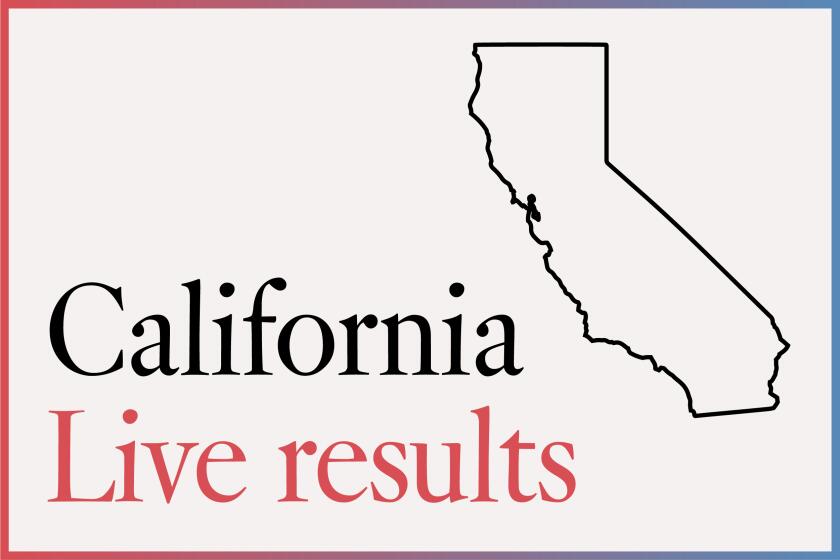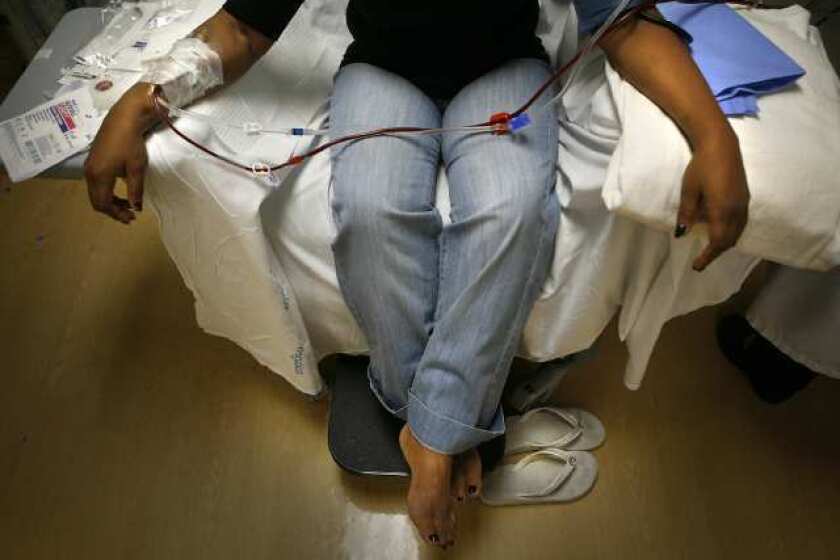Prop. 23, which would have imposed new regulations on dialysis industry, fails
SACRAMENTO — A $100-million effort to impose new regulations on the dialysis industry was defeated Tuesday.
Proposition 23 would have required dialysis clinics to employ at least one doctor who would be on site whenever patients are receiving treatment. Supporters of the measure, including the Service Employees International Union-United Healthcare Workers West, said dialysis clinics were putting profits over patient care by not having a doctor available in the event of complications or an emergency.
Opponents, however, argued the measure was the latest attempt by SEIU-UHW to weaponize the ballot box to try to force the dialysis industry to spend millions to defend itself when the union’s real interest is getting clinic workers to unionize. The dialysis industry put more than $100 million into fighting the measure, saying the unnecessary added cost would lead to dialysis clinics closing, which would put patients at risk.
Proposition 23 was opposed by 64% of voters, according to the state’s unofficial election tally Wednesday morning.
In California, there are roughly 600 dialysis clinics treating thousands of people suffering from kidney failure with machines that remove a patient’s blood and filter it to remove waste and excess fluids before returning the blood to their body. Patients typically require dialysis three days a week for about four hours a day in order to live. Due to the high demand for dialysis, clinic operators say they are typically open six days a week for up to 16 hours a day.
In addition to having a doctor on site at all times, Proposition 23 would have required clinics to report dialysis infection information to the California Department of Public Health every three months, which would be posted on the state agency’s website. Clinics would have faced a fine of up to $100,000 for failing to report the data or reporting inaccurate information.
Proposition 23 would require dialysis clinics across California to employ at least one doctor who is on-site when patients are receiving treatment.
Clinics are currently required to report dialysis infection-related information to the U.S. Centers for Disease Control and Prevention.
The measure would have also required clinics to obtain approval from the state’s public health department before closing or substantially reducing services. Proposition 23 would have barred clinics from refusing access to a patient based on their insurance.
Most people on dialysis in California are covered by Medicare, which extends coverage to people with kidney failure regardless of age or disability status.
More to Read
Sign up for Essential California
The most important California stories and recommendations in your inbox every morning.
You may occasionally receive promotional content from the Los Angeles Times.













